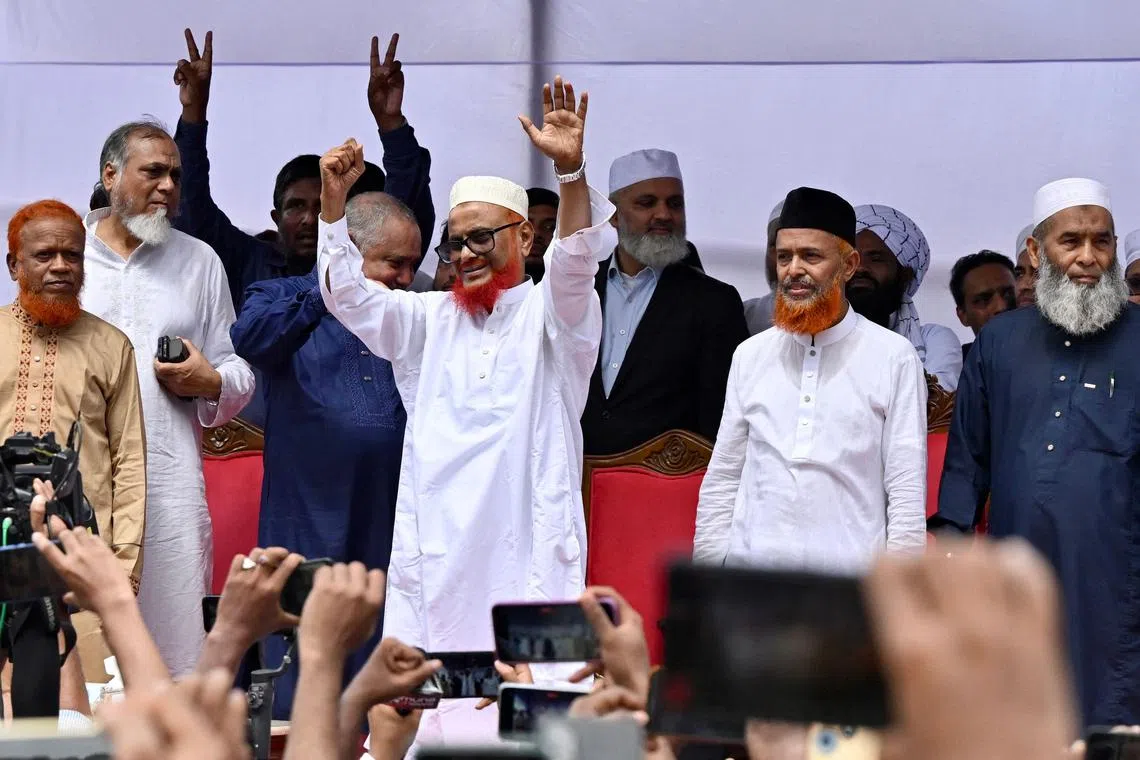Bangladesh top court restores largest Islamist party
Sign up now: Get insights on Asia's fast-moving developments

Bangladesh’s Supreme Court on May 27 overturned a conviction against a key leader of Jamaat-e-Islami, Mr A.T.M. Azharul Islam.
PHOTO: AFP
DHAKA – Bangladesh on June 1 restored the registration of the largest Islamist party there, allowing it to take part in elections more than a decade after it was removed under the now-overthrown government.
The Supreme Court overturned a cancellation of Jamaat-e-Islami’s registration, allowing it to be formally listed as a political party with the Election Commission.
“The Election Commission is directed to deal with the registration of that party in accordance with law,” commission lawyer Towhidul Islam told AFP.
Jamaat-e-Islami party lawyer Shishir Monir said the Supreme Court’s decision would allow a “democratic, inclusive and multi-party system” in the Muslim-majority country of 170 million people.
“We hope that Bangladeshis, regardless of their ethnicity or religious identity, will vote for Jamaat, and that the Parliament will be vibrant with constructive debates,” Mr Monir told journalists.
After Ms Sheikh Hasina was ousted as prime minister
The June 1 decision comes after the Supreme Court on May 27 overturned a conviction against a key leader of Jamaat-e-Islami, Mr A.T.M. Azharul Islam.
Mr Azharul Islam had been sentenced to death in 2014 for rape, murder and genocide during Bangladesh’s 1971 war of independence from Pakistan.
Jamaat-e-Islami supported Islamabad during the war, a role that still sparks anger among many Bangladeshis today.
The party was a rival of Ms Hasina’s father, Sheikh Mujibur Rahman of the Awami League, who would become Bangladesh’s founding figure.
Ms Hasina banned Jamaat-e-Islami during her tenure and cracked down on its leaders.
In May, Bangladesh’s interim government banned the Awami League, pending the outcome of a trial over its crackdown on mass protests that prompted Ms Hasina’s ouster in 2024. AFP


